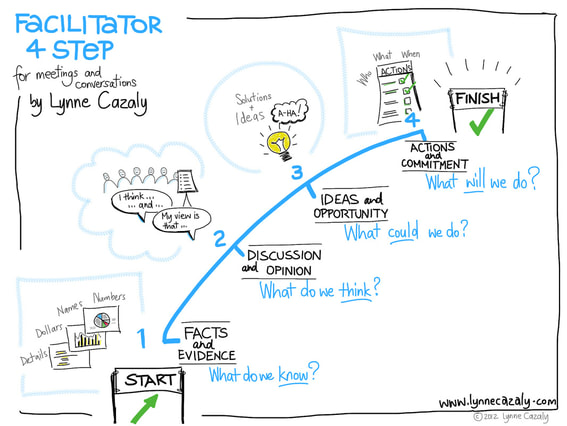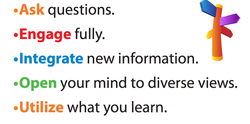Dear Machik Weekend Facilitator,
Thank you very much for confirming your participation as a facilitator of small group discussions on social innovation for Tibet for the10th annual Machik Weekend. We are truly grateful for your care and contribution. We urge you to read this entire information page to familiarize yourself with the format of the event and your role as facilitator.
Machik Weekend small group discussions are opportunities for new encounters for participants. We have received positive feedback for these small group discussions in past years. Your help hugely adds to creating more connectivity between participants as well as to encourage conversations on topics related to civic engagement for Tibet.
Please understand that Machik Weekend participants are diverse and multigenerational Tibetan, Chinese and global citizens - changemakers, professionals, students, educators, and supporters - who come from different backgrounds and experiences. As a MW11 facilitator, you will ensure everyone gets a chance to speak and that participants have thought-provoking and respectful dialogues with one another. Depending on your group, this may mean providing prompts to begin the discussion and ensuring everyone can speak. We are confident that you will lead an insightful and dynamic discussion reflecting on MW11 and beyond.
This page details the general program structure of the weekend.
If you have any questions, feel free to contact Amanda Jagus at [email protected].
Please read through the Facilitation Tips section at the end of this guide for facilitation strategies and guidance.
Thank you very much for confirming your participation as a facilitator of small group discussions on social innovation for Tibet for the10th annual Machik Weekend. We are truly grateful for your care and contribution. We urge you to read this entire information page to familiarize yourself with the format of the event and your role as facilitator.
Machik Weekend small group discussions are opportunities for new encounters for participants. We have received positive feedback for these small group discussions in past years. Your help hugely adds to creating more connectivity between participants as well as to encourage conversations on topics related to civic engagement for Tibet.
Please understand that Machik Weekend participants are diverse and multigenerational Tibetan, Chinese and global citizens - changemakers, professionals, students, educators, and supporters - who come from different backgrounds and experiences. As a MW11 facilitator, you will ensure everyone gets a chance to speak and that participants have thought-provoking and respectful dialogues with one another. Depending on your group, this may mean providing prompts to begin the discussion and ensuring everyone can speak. We are confident that you will lead an insightful and dynamic discussion reflecting on MW11 and beyond.
This page details the general program structure of the weekend.
If you have any questions, feel free to contact Amanda Jagus at [email protected].
Please read through the Facilitation Tips section at the end of this guide for facilitation strategies and guidance.
Saturday Facilitator Guide
november 11th
On Saturday, november 11th, we would like to host an audience-wide discussion in breakout groups with your help.
Following a series of roundtables and panels, attendees will be divided into smaller groups with two facilitators in each group to guide discussions on things they have heard thus far in the event.
All participants on Saturday will be randomly assigned a group based on a number on the back of their lanyards.
Event emcees will make announcements for participants to go to the different the breakout session classes located on different floors (see below).
Please note that elevators are slow. Volunteer ushers are assigned to help facilitators guide group members to respective session rooms.
Facilitators, please ensure that your group meeting concludes on time so that everyone can move onto the next session.
GUIDING QUESTIONS FOR DISCUSSIONS ON SATURDAY
Be an active listener and keep up friendly eye contact with everyone (including non speakers!).
First 3 Minutes:
Start on time, introduce yourself and share why you are at Machik Weekend.
Ask participants to share something about yourself or your reflections on the MW11 speakers. Explain the ground rules for discussions and ask for a volunteer note taker.
Next 7 Minutes:
Introductions: Ask everyone to introduce themselves BRIEFLY. If an individual takes much more time than the others, please intervene to let them know they can speak again later after everyone has been introduced.
Next 30 Minutes:
Continue to ensure everyone has a chance to speak and be alert for misunderstandings that can be addressed with the group. It is very important that all participants feel included.
Here are some tips to get through the natural lulls of conversation. People are more apt to contribute to a discussion when they are asked questions specifically.
By asking some of these questions you can include those who have not shared while directing the focus of the conversation.
Here are some guiding questions:
· Please share why are you here.
· What are your thoughts from today?
· What is something new you learned today?
· What was the most important takeaway for you?
· What was your favorite discussion topic or speaker and why?
· How has this experience impacted your perspective on Tibet? Beyond Tibet?
· How do you think this experience will impact how you engage with your community?
· How will this forum change what you do in the future?
· How do you plan to positively engage for Tibet and the world after today?
· Have you had any specific experiences, either here or elsewhere, that have changed your understanding of civic engagement?
· What was the most surprising thing you learned from Machik Weekend?
· Any concluding thoughts and suggestions?
Last 5 MINUTES:
Wrap up the conversation and ask everyone to move on to the next session.
Be an active listener and keep up friendly eye contact with everyone (including non speakers!).
First 3 Minutes:
Start on time, introduce yourself and share why you are at Machik Weekend.
Ask participants to share something about yourself or your reflections on the MW11 speakers. Explain the ground rules for discussions and ask for a volunteer note taker.
Next 7 Minutes:
Introductions: Ask everyone to introduce themselves BRIEFLY. If an individual takes much more time than the others, please intervene to let them know they can speak again later after everyone has been introduced.
Next 30 Minutes:
Continue to ensure everyone has a chance to speak and be alert for misunderstandings that can be addressed with the group. It is very important that all participants feel included.
Here are some tips to get through the natural lulls of conversation. People are more apt to contribute to a discussion when they are asked questions specifically.
By asking some of these questions you can include those who have not shared while directing the focus of the conversation.
Here are some guiding questions:
· Please share why are you here.
· What are your thoughts from today?
· What is something new you learned today?
· What was the most important takeaway for you?
· What was your favorite discussion topic or speaker and why?
· How has this experience impacted your perspective on Tibet? Beyond Tibet?
· How do you think this experience will impact how you engage with your community?
· How will this forum change what you do in the future?
· How do you plan to positively engage for Tibet and the world after today?
· Have you had any specific experiences, either here or elsewhere, that have changed your understanding of civic engagement?
· What was the most surprising thing you learned from Machik Weekend?
· Any concluding thoughts and suggestions?
Last 5 MINUTES:
Wrap up the conversation and ask everyone to move on to the next session.
|
GROUP NO
1 2 3 4 5 6 7 8 9 10 11 12 13 |
BREAKOUT GROUP ROOMS
9th Floor | Rm. 04 4th Floor | Rm. 07 4th Floor | Rm. 06 4th Floor | Rm. 05 4th Floor | Rm. 04 4th Floor | Rm. 03 3rd Floor | Rm. 09 3rd Floor | Rm. 08 3rd Floor | Rm. 07 3rd Floor | Rm. 06 3rd Floor | Rm. 05 Bateman Room Constantino |
FACILITATORS
Gesang Lhamo + Tenzing Dorje Tenzin Yangkey + Barbara Kelley Khachoe Wangmo+ Tenzing Wangdak Tenzin Dolma + Tenzin Kunsang Lonten + Chemi Lama Rinchen Doma + Vidya Srinivasan Tsering Tsomo + Derrick Vocelka Sangjie Tashi + Amanda Jagus James Robinson + Tenzin Woden Ellie McCutcheon + Pema Choekyi Tenzin Chokki +Kirti Kyab (In Tibetan Language) Lekey Leidecker + Rigzin Taring (High School Student Session) Dorji Dolma + Anna Tsomo Leidecker |

DISCUSSION TIPS
A good facilitator doesn’t need to know all the answers --- they just need to be sensitive, observant, and able to stimulate the conversation when needed!
Introduction
A good facilitator doesn’t need to know all the answers --- they just need to be sensitive, observant, and able to stimulate the conversation when needed!
Introduction
- Ask a team member to volunteer to be a note-taker
- You make the first introduction, and include a personal anecdote/takeaway from some part of the conference. This isn’t expected from others, but by setting an example, they feel more comfortable and inclined to open up.
- Ask participants to introduce themselves (name, location, occupation and a hobby or interest)
- Ask everyone why they are at Machik Weekend?
- Let people know to be comfortable in discussion, by describing the discussion space as one where all ideas/comments/questions are shared and received respectfully.
- Each group is different, read body language to gauge interest in the direction and tone of the discussion. Make friendly eye contact, if a certain part of the circle seems to be ‘alive’ and another ‘dead’, try to swing some attention over.
- Encourage people to share their experiences and ideas and urge those with relevant background information to share at appropriate times.
- Give all participants a voice - at the start highlight the value of a diversity of perspectives as an essential part of the process.
- Step back when a group is functional/functioning, only intervene if it seems like it would be helpful
- Ask questions like “How do you feel about this?” to encourage participation by reducing participants’ fear of answering incorrectly.
- Review what has been said and ask a branching question into another subjects if the conversation becomes repetitive.
- If a conflict arises, encourage everyone to be open and listen to each other with the respect they deserve.
- Look to questions on below for help directing focus of discussion
- Relieve tension by summarizing both arguments and finding common ground, by pulling the ideas together you can reframe the context.
- If the group starts to veer in the direction of negativity and/or pointless venting, ask them how they would like to address this. End the discussion with a summary, thanks and call to action.
- Ask all members to convene at Constantino room for closing plenary.

